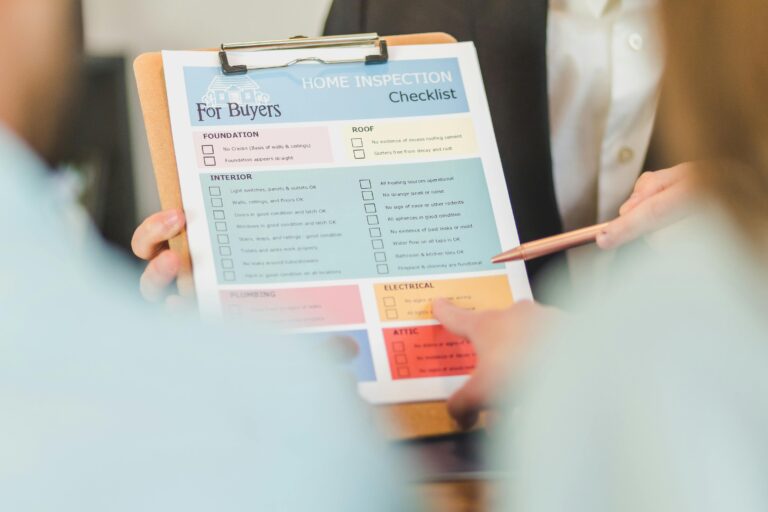Buying a Home as a Single Person: What to Know
Buying a home is one of the biggest homeownership decisions anyone can make—but when you’re doing it solo, the process comes with its own unique set of challenges and opportunities.
From budgeting wisely to choosing the right location, single buyers must navigate both the financial and emotional aspects of homeownership with confidence.
The good news?
With careful planning and clear priorities, owning a home on your own can be not only achievable but incredibly rewarding.
Understanding the Realities of Solo Homeownership
According to real estate trends, single-person homeownership has been steadily rising over the past decade. Whether it’s a young professional buying a first condo or a single parent investing in stability, individuals are embracing independence and financial growth through real estate.
However, unlike couples who can share expenses, single buyers rely solely on one income, one credit history, and one set of resources.
That makes financial preparation especially crucial.
Before you start house hunting, take time to evaluate your situation and ensure you’re ready to handle the responsibilities that come with owning a home alone.
- Income stability: Assess your job security and future earning potential before committing to a mortgage.
- Emergency savings: Aim for at least 3–6 months’ worth of expenses to cover unexpected repairs or income disruptions.
- Credit health: A strong credit score can help you secure better mortgage rates, saving thousands over time.
Making Smart Financial Homeownership Decisions
When buying a home as a single person, your financial strategy becomes even more important. You’ll need to balance affordability, comfort, and long-term goals to make sure your purchase supports your overall financial health.
1. Set a Realistic Budget
It’s easy to fall in love with a home that stretches your finances, but staying within your means ensures long-term peace of mind. Most financial experts recommend spending no more than 28% of your gross monthly income on housing costs—including mortgage, taxes, and insurance.
Use an online mortgage calculator to estimate your payments, then add in utilities, maintenance, and homeowner association (HOA) fees to get a true picture of your costs.
2. Consider Long-Term Stability
If you plan to stay in your home for several years, think about how your needs might evolve.
Will you need a home office, guest room, or more storage space in the future? Buying with foresight prevents outgrowing your space too quickly.
3. Explore Loan Options for Single Buyers
Several mortgage programs cater to first-time and single buyers, helping make homeownership more accessible:
- FHA loans: Require lower down payments (as little as 3.5%) and are ideal for those with limited savings.
- Conventional loans: Offer flexibility and competitive rates for buyers with strong credit scores.
- VA and USDA loans: Available to eligible veterans and rural homebuyers, often with no down payment required.
Working with a knowledgeable mortgage lender can help you explore your best financing options and ensure you understand all associated costs.

Choosing the Right Home for Your Lifestyle
Another major homeownership decision for single buyers is selecting a property that fits both current and future needs. You’ll want a home that supports your daily life, aligns with your priorities, and remains a strong investment over time.
1. Location Matters More Than Ever
As a solo homeowner, proximity to work, public transportation, and community amenities can significantly impact your quality of life. Consider areas with strong neighborhood engagement, low crime rates, and easy access to shopping, parks, or social activities.
2. Size and Maintenance Level
Owning a large home can seem appealing, but maintenance costs and chores can quickly add up. Condos, townhouses, or smaller single-family homes often provide a better balance between comfort and manageability. Think about how much time you realistically want to spend cleaning, maintaining, or repairing your home.
3. Future Flexibility
It’s wise to choose a home that gives you options down the road. If you might relocate or expand your household in the future, look for properties with good resale potential or the possibility of rental income. Homes in growing neighborhoods or near universities, hospitals, or business hubs tend to hold value well.
Managing Risk as a Solo Homeowner
Owning a home on your own comes with both freedom and responsibility. Without a second income or partner to share costs, risk management becomes an essential part of your homeownership decisions.
- Emergency fund: Maintain accessible savings for repairs like roof leaks, appliance replacements, or plumbing issues.
- Insurance coverage: Homeowner’s insurance is non-negotiable, but consider additional protection like disability or income insurance for added security.
- Home warranty: For older homes, a warranty can cover the cost of major system or appliance failures.
- Routine maintenance plan: Schedule seasonal upkeep for HVAC systems, gutters, and landscaping to prevent costly repairs later.
Establishing a strong safety net ensures that unexpected expenses don’t jeopardize your financial stability.
Emotional Aspects of Buying Solo
While the financial side of homeownership is critical, don’t overlook the emotional journey of buying a home on your own.
For many single buyers, purchasing a property is not just a financial milestone—it’s a deeply personal achievement.
- Confidence and independence: Owning your home means you’ve built stability entirely on your own terms.
- Community connection: Building relationships with neighbors and joining local events can make your new home feel more grounded.
- Support network: Even if you live alone, having trusted friends, family, or professionals to lean on during the process is invaluable.
Buying solo can also feel daunting at times. If decision fatigue sets in, remember to pace yourself and seek guidance when needed. You don’t have to make every choice alone—real estate agents, financial advisors, and even home inspectors are there to support you every step of the way.
Tips for a Smooth Buying Process
To make your homebuying journey as smooth as possible, follow these practical steps:
- Get pre-approved early: Knowing how much you can afford streamlines your search and strengthens your offer.
- Work with a trusted agent: A knowledgeable real estate professional can help you find homes that meet your budget and lifestyle needs.
- Don’t skip the inspection: Protect your investment by identifying potential issues before closing.
- Negotiate wisely: Even small concessions like closing cost coverage can make a big difference to your bottom line.
- Plan your move carefully: Create a moving timeline and budget to avoid last-minute stress.
Building Long-Term Wealth and Security
One of the most empowering parts of buying a home as a single person is the ability to build long-term wealth independently. Real estate remains one of the most reliable paths to financial stability, offering both equity growth and potential passive income in the future.
- Build equity: Every mortgage payment increases your ownership stake in the property.
- Refinance strategically: As your credit and income improve, refinancing can lower your payments or shorten your loan term.
- Consider renting out space: If your home allows, renting a spare room or basement can help offset mortgage costs.
- Keep improving: Smart upgrades—like energy-efficient appliances or curb appeal enhancements—can boost your property’s value.
By treating your home as both a living space and a long-term investment, you’ll position yourself for greater financial freedom over time.

Owning Solo, Living Confidently
Buying a home as a single person is one of the most empowering homeownership decisions you can make.
While it requires careful financial planning, emotional readiness, and smart risk management, it also brings immense satisfaction and security.
The key is to approach the process with clarity—understand your priorities, know your numbers, and surround yourself with trusted professionals who can help guide your journey.
Whether you’re purchasing your first condo or your forever home, remember that solo homeownership isn’t about doing everything alone—it’s about owning your path forward with confidence and purpose.
Take the first step today: review your finances, explore local listings, and start envisioning the future home that fits your unique lifestyle.
Ready to take the next step in your homeowner journey? Connect with an expert and learn your options.







